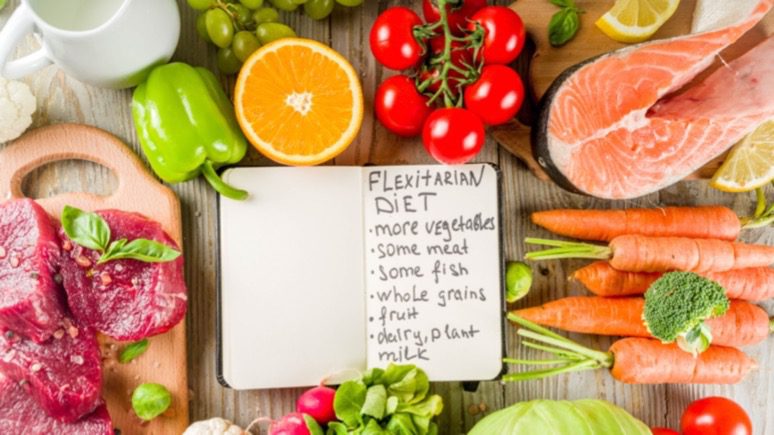Diets


August 7, 2022













0











0
Whole Foods Diet
By Editorial Team (Y)
If you are looking for a long-term eating plan rather than a formal diet, you should try the whole foods diet. This eating approach focuses on foods that are minimally processed and in the closest possible state to their natural state. Such foods include whole grains, lean meats like fish and chicken, fruits, vegetables, legumes, yogurt, cheese, milk, seeds, and nuts. Generally, a whole-foods diet is an eating pattern that promotes foods close to their natural condition and eliminates unhealthy ingredients such as added sugars and refined grains.
It promotes weight loss, decreasing the risk of heart diseases, cancer, type 2 diabetes, obesity, cognitive decline, and improving the immune system and gastrointestinal tract health.
Read more


August 7, 2022













0











0
Ornish Diet
By Editorial Team (Y)
Heart diseases become more common each year. Therefore, currently, people try to follow a healthy diet and lifestyle to reduce the risk of heart disease development. The Ornish diet is a heart-healthy eating pattern. This diet plan restricts dietary fat to less than 10% of the daily calorie intake. In addition, it promotes eating fat only from plant sources. Overall, the Ornish diet is a very low-fat, lacto-ovo-vegetarian diet.
Changing your eating pattern to the Ornish diet can contribute to reversing the progression of chronic conditions, including prostate cancer, heart disease, and diabetes. Also, this diet promotes weight loss.
Read more


August 7, 2022













0











0
MIND Diet
By Editorial Team (A)
Did you know that our diet can affect the risk of developing cognitive decline and dementia? It appears that shifting our food choices toward a healthier nutritional approach can slow brain aging by 7.5 years.
The MIND, or Mediterranean-DASH Intervention for Neurodegenerative Delay, diet is an eating plan meant to prevent dementia and age-related brain function decline. As the name states, it combines principles of Mediterranean and DSAH (Dietary Approaches to Stop Hypertension) diets.
According to the research, the MIND diet can reduce the risk of developing cognitive decline and dementia (including Alzheimer's disease). In addition, this nutritional approach can decrease the risk of cardiovascular diseases and some types of cancer.
Read more


August 7, 2022













0











0
Weight Watchers
By Editorial Team (Y)
Weight Watchers, also known as WW, is a weight-loss program that involves a point system and meal replacement and provides counselling. The idea is that you have daily points budget, and different foods have different points value. So, you choose meals according to those points to stay within your daily limit.
Weight Watchers system calculates your daily nutritional needs based on your weight, height, age, and level of activity. This diet plan can help you lose weight and reduce the risk of type 2 diabetes.
Read more


August 7, 2022













0











0
Mayo Clinic Diet
By Editorial Team (A)
The availability of programs for fast and significant weight loss has increased in recent years. However, such an approach generally leads to weight regain and an unhealthy relationship with food in the long term. It occurs because these programs are focused on quick results rather than on changing habits and mindsets.
The Mayo Clinic Diet is a long-term program that aims to help reduce weight and create a healthy eating plan that you can maintain for life. Mayo Clinic Diet involves an introduction of new healthy habits such as eating more vegetables and fruits, moving your body, and eliminating distractions during eating. By using the science of behavior change, this approach will help you create realistic goals, stay motivated, and learn how to deal with setbacks.
Mayo Clinic Diet will benefit people who want to lose weight or improve their health and feel better.
Read more


August 7, 2022













0











0
Paleo Diet
By Editorial Team (A)
Have you ever wondered how different our diet is from our ancestors'?
The paleo diet is a dietary pattern based on the eating habits of people during the Paleolithic era. It promotes eating foods that can be gathered or hunted, including fruits, vegetables, seeds, nuts, fish, and lean meat. This diet excludes grains, legumes, sugars, dairy products, salt, coffee, alcohol, and processed oils.
Some researchers propose the evolutionary discordance hypothesis. It is based on the idea that the modern diet changed with the development of farming doesn't suit the human body genetically. However, this hypothesis is arguable and more research is needed in this area.
According to some studies, the paleo diet is associated with decreased risk of heart diseases, obesity, and type 2 diabetes and may promote weight loss. However, it is essential to mention that more research is still needed.
Read more


August 7, 2022













0











0
Flexitarian Diet
By Editorial Team (Y)
Nowadays, more and more people consider reducing meat intake to improve their health and quality of life. One of the diets that emphasize low meat intake is a flexitarian diet. The flexitarian diet, or semi-vegetarian diet, is an eating pattern that allows people to get the benefits of a vegetarian diet without complete refusal of animal-based products. It focuses on plant-based foods and incorporates the consumption of animal products in moderation. You should check out a flexitarian diet whenever you are looking for a healthy diet without strict rules and counting calories. The flexitarian diet is more flexible than completely vegetarian and vegan diets.
The flexitarian diet emphasizes adding a variety of plant foods to the diet rather than restricting and removing foods. Eating plant foods provides protection against diabetes, heart disease, and cancer and promotes weight loss. This is due to plenty of vitamins, minerals, and phytochemicals present in plant-based food.
Read more


August 7, 2022













0











0
DASH Diet
By Editorial Team (Y)
Hypertension affects more and more people each year. The research showed that some nutrition plans could lower blood pressure in people experiencing hypertension. One of such meal plans is the DASH diet. The DASH diet, or Dietary Approaches to Stop Hypertension, is an eating plan that focuses on controlling and preventing hypertension. The DASH diet is the most effective in lowering blood pressure, reducing levels within two weeks of starting the diet plan. Along with reducing blood pressure, this diet pattern lowers total cholesterol and low-density lipoprotein (LDL) levels. This diet consists primarily of fruits, vegetables, whole grains, and low-fat dairy products. In addition, the DASH diet includes fish, lean meats, poultry, beans, and nuts. Furthermore, it limits foods and beverages with added sugar, added fats, and red meat. DASH diet provides health benefits such as improvement of hypertension, weight loss, and reducing the risk of heart disease, metabolic syndrome, diabetes, and certain types of cancer.
Read more


August 7, 2022













0











0
Intermittent Fasting
By Editorial Team (Y)
The idea of intermittent fasting has become popular in recent years. Intermittent fasting is an eating plan that does not restrict what you eat but instead limits when you eat. It consists of cycles of fasting and eating. You can perform intermittent fasting in various ways, including 16:8 fasting, 5:2 fasting, an alternate date fasting, etc.
You can burn fat by eating one meal a couple of days a week or fasting for a certain number of hours each day. Through intermittent fasting, your body has a longer period when it is burning fat after burning through the calories you consumed during your last meal. Also, there is evidence that intermittent fasting promotes health benefits, including improvement of arthritis, heart disease, asthma, brain health, multiple sclerosis, Alzheimer's disease, prevention of certain types of cancer, and reducing the risk of type 2 diabetes. In addition, this diet provides an anti-aging effect.
Read more


August 7, 2022













0











0
Gluten-Free Diet
By Editorial Team (Y)
Currently, around 1% of the United States population has celiac disease, and approximately 6% are affected by "non-celiac gluten sensitivity". People who carry these health conditions have to follow a gluten-free diet. The gluten-free diet is an eating pattern excluding the consumption of gluten. The last is a protein found in wheat, rye, barley, triticale, etc. Managing celiac disease symptoms and other gluten-related health problems requires a gluten-free diet. In addition, this diet plan benefits in improving health, weight loss, and increasing energy.
Read more









